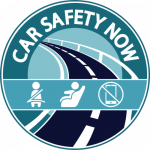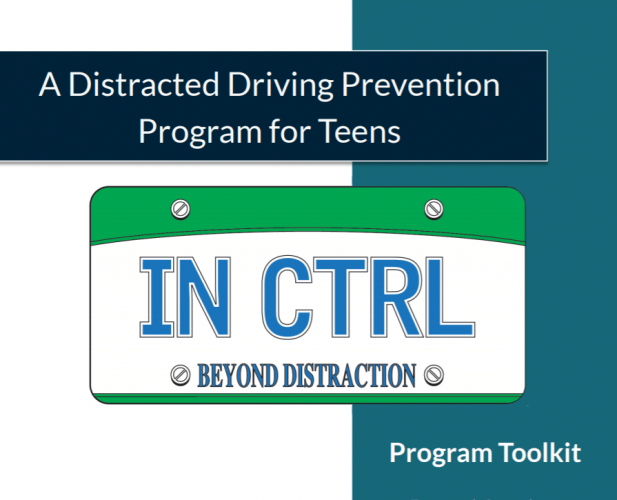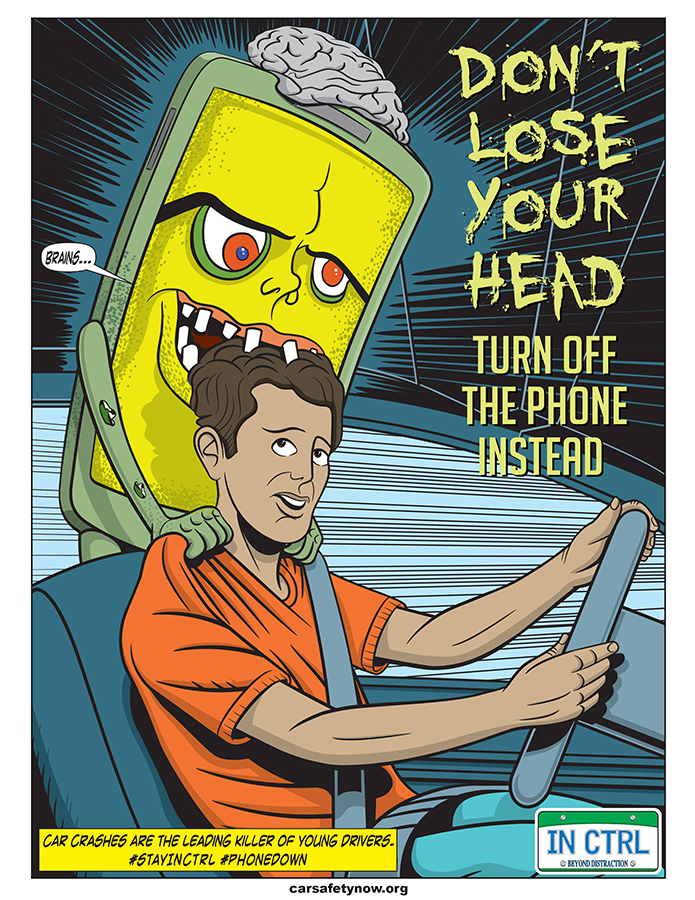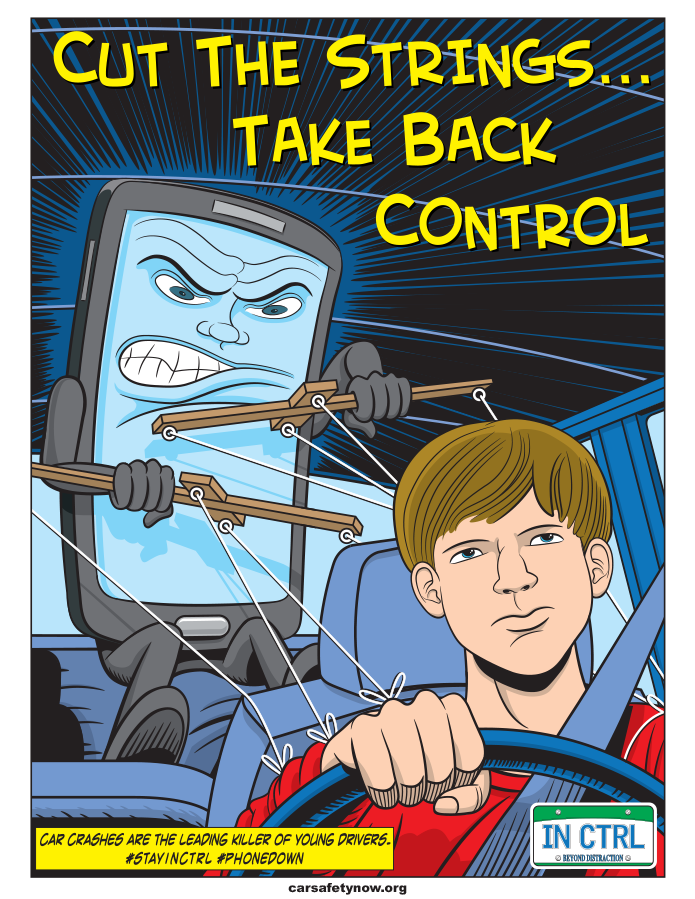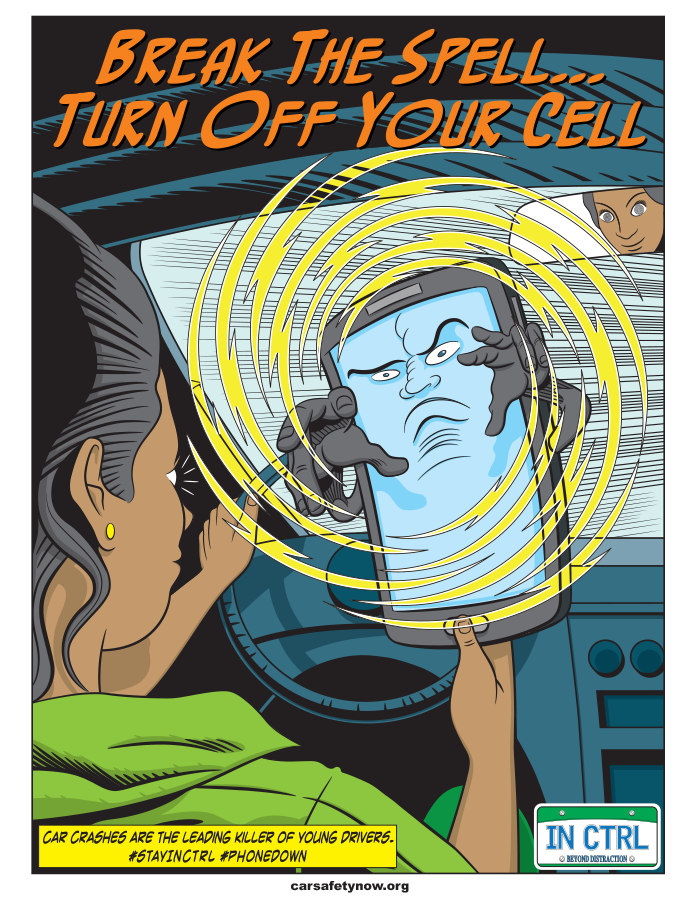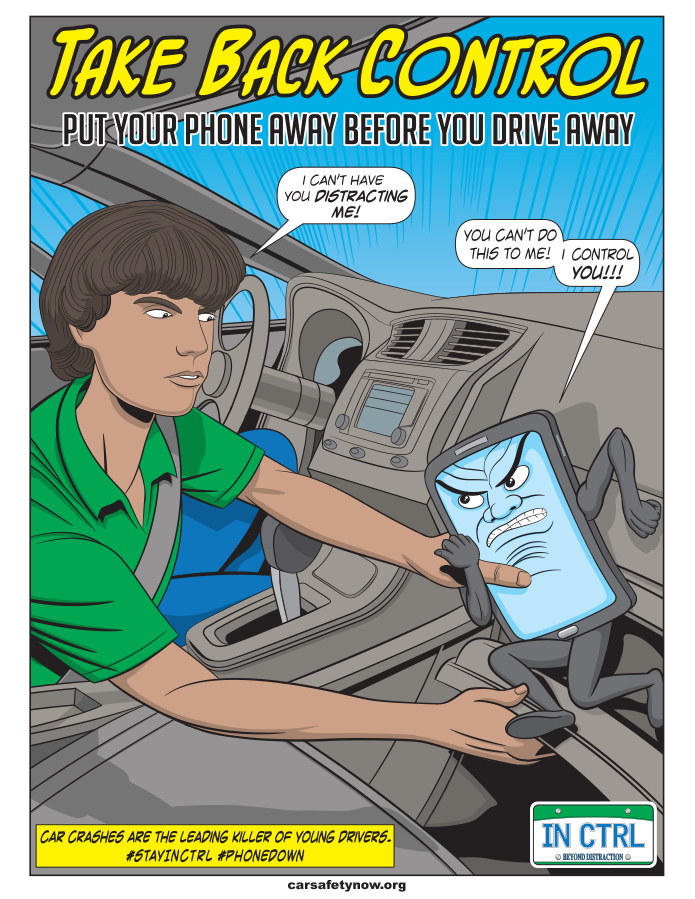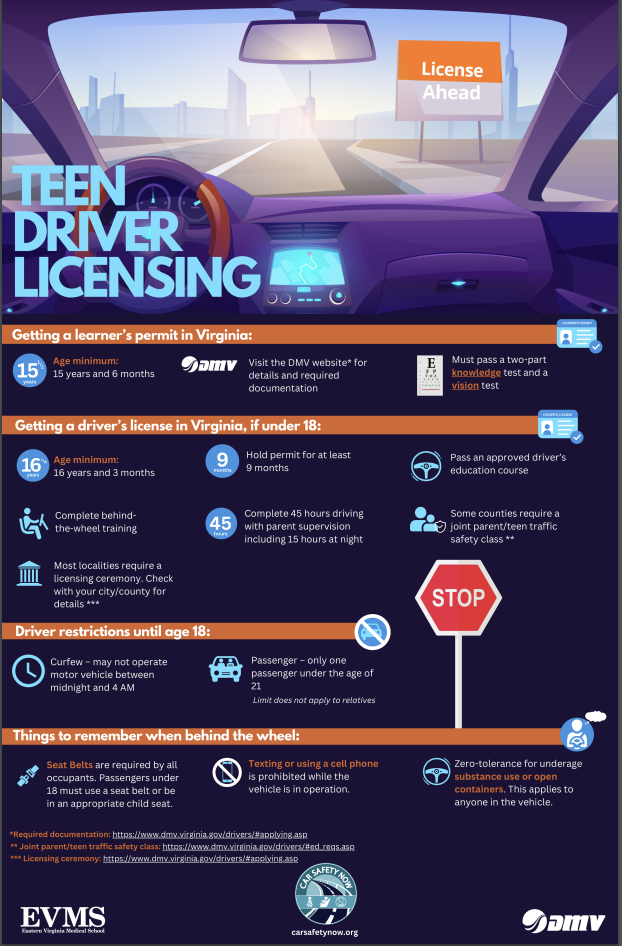Teen Safety
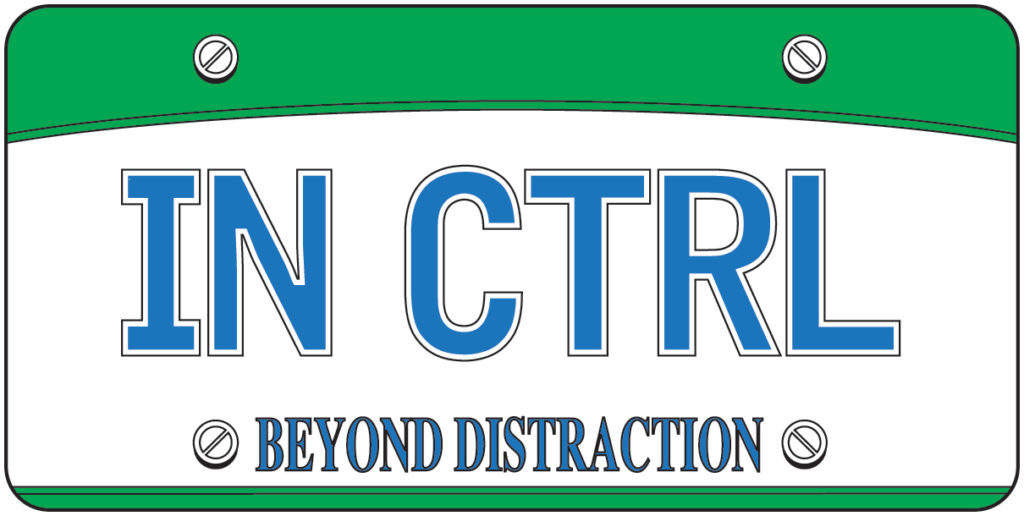
In Control Program Toolkit for Teen Drivers: Activities and posters promote the norm to be in control when behind the wheel. The research-supported distracted driving program for teens includes posters, social media discussion topics, contests encouraging creativity, and more.
About the In Control Program
In Control is a school-based program designed for teen drivers. Rather than a lecture-based format, the program materials are fun and engaging for students. The design received input from teachers to align with standards of learning requirements and use minimal academic time.
In Control Program Components
A suggested timeline is available. It is adaptable to meet your needs. The program materials are free for non-profit, educational use. They can be used in whole or in part to create a unique “Distracted Driving” program for your setting. Proper citation is appreciated.
A series of posters which use an American comic-book style help to engage students with humor. Each poster depicts a different scene where the phone is “in control” of the driver. Posters are attached below and are available in English and Spanish languages.
A poster, in the same American-comic book style as depicted in the kickoff posters, is circulated without a tagline. The students are tasked with creating a tagline for the poster. The contest flyer and poster are included in the toolkit.
The contest invites students to create a Public Service Announcement (PSA) about distracted driving. A PSA, generally speaking, is a message with the objective of raising awareness, changing public attitudes, and changing behavior toward a social issue. Students are encouraged to come up with a unique way to communicate to their peers and parents about the dangers of driving while distracted. Messages can be done in a variety of formats: music (e.g., rap, pop, etc.), artwork, video, poetry, radio or TV commercial, stories, etc. The message must be an original work by the student. A contest flyer is included in the toolkit.
Students come up with their own creative ideas on how to combat the problem of distracted driving. The solution can be a device, an intervention idea, creative idea for cell phone placement, or any number of other ideas conceived by the students. A contest flyer and teacher instructions are included in the toolkit.
This activity is unique in that it uses actual data pulled directly from Distracted Driving Surveys you can administer at your school. Students designing a poster can pick a question to build a theme for their poster, calculate the statistics of all the responses, and create unique posters to bring awareness to students that driving distracted is not “the norm” for teens within their school. Posters should be displayed around the school. Samples of past student posters, instructions, and surveys are included in the toolkit.
You may wish to measure distracted driving in your setting before and after implementing the In Control program in your school/setting. Comparing this pre and post data can help you determine how effective your interventions have been on the student population. Instructions and data collection tools for conducting student surveys and parking lot observations are included in the toolkit.
In this intervention component, a group of students take an active role in engaging peers to discuss how they can avoid driving distracted. The In Control Challenge can take place multiple times throughout the school year. Student liaisons select school events, such as football games, pep rallies, dances, or even simply a monthly table at lunchtime. Students devise creative posters, displays, or even skits around the topic of distracted driving and attend the pre-selected events to actively engage students in the issues. This is a chance for students to take an active leadership role and show their creative side.
This component encourages open communication among students and faculty about distracted driving. Discussions can take place on social media or your school’s preferred media platform for dialogue with students. Sample discussion topics are included.
These support components are designed to introduce the material to parents, teachers, and other educators and to keep educators aware of the program’s progress throughout the year.
Poster Prints
Don't Lose Your Head Downloads
Teen Driver Licensing
An evaluation study occurred in two Virginia public schools using a student-led approach for all interventions. Classroom surveys (N=1147) conducted before and after the program assessed attitudes, behaviors, and beliefs about distracted driving. Anonymous parking lot observations of student drivers (N = 1644) were also done before and after the program. The observations tallied talking on a cell phone, texting or other handheld technology use, and other distractions.
As the intervention group of students gained more driving experience, the program showed success in deterring distraction-related views and practices. Alternatively, control school students’ distraction-related views and practices worsened over time with more driving experience.
Reference:
Will, K. E., Maple, E. L., & Perkins, A. M. (2015). In Control, Beyond Distraction: A School-Based Program to Reduce Teen Driver Distraction. Invited presentation; Session: Research for Results. Safe Kids Worldwide PREVCON: Childhood Injury Prevention Convention, Washington, DC.
